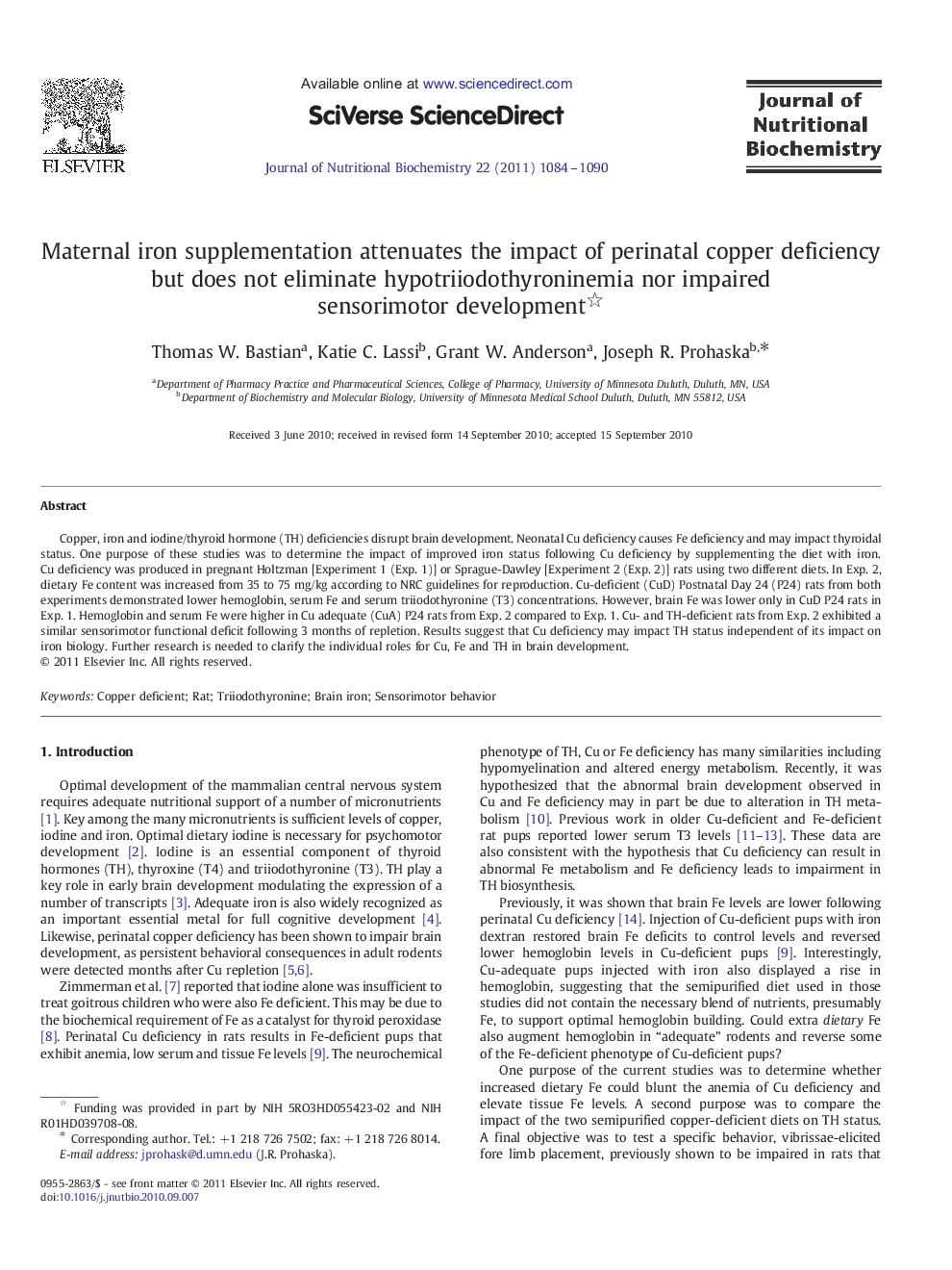| کد مقاله | کد نشریه | سال انتشار | مقاله انگلیسی | نسخه تمام متن |
|---|---|---|---|---|
| 1990011 | 1540691 | 2011 | 7 صفحه PDF | دانلود رایگان |

Copper, iron and iodine/thyroid hormone (TH) deficiencies disrupt brain development. Neonatal Cu deficiency causes Fe deficiency and may impact thyroidal status. One purpose of these studies was to determine the impact of improved iron status following Cu deficiency by supplementing the diet with iron. Cu deficiency was produced in pregnant Holtzman [Experiment 1 (Exp. 1)] or Sprague-Dawley [Experiment 2 (Exp. 2)] rats using two different diets. In Exp. 2, dietary Fe content was increased from 35 to 75 mg/kg according to NRC guidelines for reproduction. Cu-deficient (CuD) Postnatal Day 24 (P24) rats from both experiments demonstrated lower hemoglobin, serum Fe and serum triiodothyronine (T3) concentrations. However, brain Fe was lower only in CuD P24 rats in Exp. 1. Hemoglobin and serum Fe were higher in Cu adequate (CuA) P24 rats from Exp. 2 compared to Exp. 1. Cu- and TH-deficient rats from Exp. 2 exhibited a similar sensorimotor functional deficit following 3 months of repletion. Results suggest that Cu deficiency may impact TH status independent of its impact on iron biology. Further research is needed to clarify the individual roles for Cu, Fe and TH in brain development.
Journal: The Journal of Nutritional Biochemistry - Volume 22, Issue 11, November 2011, Pages 1084–1090